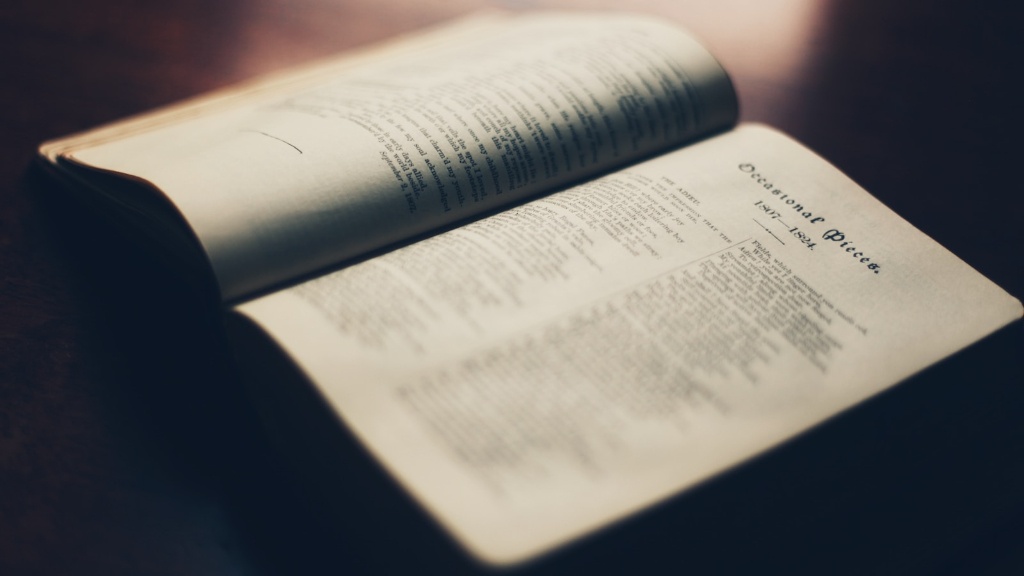Definition of Poetry
Poetry is an art form that has existed for centuries, in which rhymes and sounds are used to express emotions, experiences, ideas, and stories. It is a means of creative communication and expression, often used in literature and performing arts. Unlike many other forms of literature, poetry is not limited to a particular genre or structure, and different types of poetry exist, each with its own unique style. Generally, poetry is composed of figurative language and the rhythmic use of language, sound, and imagery to evoke strong emotions in the reader.
Characteristics of Poetry
Poetry has a number of characteristic features, which distinguish it from other forms of literature. For example, poems typically contain figurative language and vivid imagery, along with symbols and metaphors. Additionally, poetic form and structure is often used, such as meter, rhyme and alliteration. Moreover, the use of rhythm and sound helps to convey ideas, emotions and stories in catchy, memorable ways.
Types of Poetry
There are many different types of poetry, including epic, lyrical, haiku, and sonnet. Each type has its own unique style and form, as well as certain characteristics that make it different from the others.
Epic poetry is a narrative form, typically written in a grand, elevated style. It typically tells a story of a hero and their heroic deeds, often containing supernatural elements. Examples of epic poetry include the ancient works of Homer and Virgil, as well as more modern works such as John Milton’s Paradise Lost.
Lyrical poetry uses rhythm and figurative language to express the feelings, emotions and thoughts of the poet. It is typically associated with love, nature and relationships. Examples of lyrical poetry include works by William Wordsworth, Walt Whitman, and Emily Dickinson.
Haiku is a type of Japanese poetry made up of three lines, each with five, seven, and five syllables, respectively. It is a form of minimalism, with a focus on nature and emotions. Famous examples of haiku include works from the famous Japanese poet Matsuo Basho.
Sonnets are fourteen lines of verses, typically written in iambic pentameter and structured in a particular way. Examples of sonnets include William Shakespeare’s works, as well as works by Elizabeth Barrett Browning and Christina Rossetti.
Writing Poetry
Writing poetry is a great way to express oneself in a creative and meaningful way. It is also a great way to explore emotions and experiences that may be difficult to express in other forms. There are some key tips to bear in mind when writing poetry, such as focusing on the sound, language and form of the poem, being aware of the different types of poetry and their specific characteristics, and paying attention to the structure and flow of the poem. Additionally, it can be helpful to read poetry from different eras and authors, which can be inspiring and give an insight into the various styles of poetry.
Purpose of Poetry
Poetry is not just a form of entertainment, but also has a deeper purpose. Its primary purpose is to convey thoughts, feelings, and ideas in a creative, emotional and memorable way. It also serves as a form of catharsis, allowing the poet to express themselves and process their emotions. Additionally, poetry often serves as a commentary on society, allowing poets to comment on the world around them and share their perspectives.
Influence of Poetry
Throughout history, poets have had a great influence on society and culture. Poetry has been used to educate, entertain, and provide a platform for political and social commentary. For example, the works of William Shakespeare have had a profound influence on English literature, and have helped to shape English as a language. Additionally, the works of poets such as William Wordsworth and Walt Whitman have had an impact on the Romantic movement, and the Harlem Renaissance was heavily shaped by the works of Langston Hughes and other African-American poets.
Modern Poetry
In modern times, poetry has evolved with the times and technology, with many poets using the internet and social media to share their work. Additionally, spoken-word poetry has become popular, with the rise of slam poetry, in which poets perform their work in a competitive environment. Moreover, poetry is no longer confined to literature and the performing arts, but can now be found in everyday expressions such as memes, jokes, and song lyrics.
The Role of Poetry
Poetry has played an important role throughout history, and remains a vital art form today. Its influence is still felt in literature, music, and popular culture. Additionally, it can serve as an outlet for creativity, expression, and emotion, and a platform for social and political commentary. Moreover, poetry can provide an opportunity for insight and reflection, and can help to put life experiences and emotions into perspective.
The Art of Poetry
The art of writing poetry is just as important as the end result, and the process can be both enjoyable and therapeutic. There is no one way to write a poem, and poets often draw on their own experiences and perspectives when creating their work. The beauty of poetry lies in its flexibility – it can be adapted to suit any message, emotion or story, and will continue to shape our culture for years to come.


